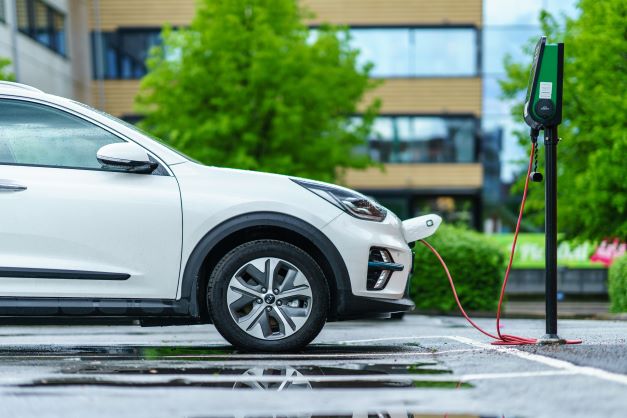Are electric cars good for the environment?
 Sales of electric cars rose globally by 40% in 2022, and with 276,203 new EVs hitting the roads in the last 12 months, they account for more than 16% of all new cars sold in that time. In the UK, with a ban on new petrol and diesel cars coming in from 2035, more and more people are investigating the switch to electric every year.
Sales of electric cars rose globally by 40% in 2022, and with 276,203 new EVs hitting the roads in the last 12 months, they account for more than 16% of all new cars sold in that time. In the UK, with a ban on new petrol and diesel cars coming in from 2035, more and more people are investigating the switch to electric every year.
We go into the most commonly asked questions around EVs, and bust the biggest myths about range, performance and power here, but a major topic that is rightfully on people’s minds when choosing an electric car is about their environmental impact. Are electric cars good for the environment? How good for the planet are they really? Can our national electric grid cope, and what about recycling the batteries?
Are electric cars good for the environment?
There are two major factors to consider when answering this question. Firstly, the environmental impact of manufacturing electric cars and secondly, the impact of running them.
When looking at the manufacture of electric vehicles, the key component is the battery. Lithium batteries are largely made from base metals such as copper, aluminium and iron which can require energy-intensive extraction. Similarly, the electricity consumption for battery production is higher than the energy needed to manufacture an internal combustion engine but for both instances, this is a short-term situation. As demand for electric vehicles increases, the projected amount of renewable energy is also set to rise sharply alongside it. This cleaner electricity, combined with improved battery production techniques and advancements in battery technology, mean that electric car production is getting greener every day.
Once an electric car is on the road, it produces much lower emissions than petrol or diesel engine cars. The best possible scenario is to have 100% of EVs running on renewable power and we’re not as far off as you might think. Windfarms, solar panels, biomass and hydro plants generated nearly half of all of the UK’s electricity in 2022. By 2050, solar power is set to generate the largest share of UK electricity, and the UK aims to have 100% of its electricity produced by renewable sources.
Above all, the rapid rise in electric car sales is mirrored by rapid advances in more environmentally friendly production methods for cars, and energy. Progress in these areas reduces our reliance on fossil fuels and puts us all on the path to a greener future. By making the switch to electric, you are helping to accelerate change and becoming part of the solution to climate change.
Can our electricity grid cope with demand?
According to the National Grid Group, even if we all switched to electric overnight, demand would actually only increase by about 10% which would be entirely manageable. In fact, even if this did happen, we would still use less electricity overall as a nation than we did 20 years ago. How is this so? Because of improved energy efficiency in home appliances and lighting, alongside the addition of solar power installations across the uk, which means that we are using less power overall.
A key factor in maximising the sustainability of electric cars is not how we charge our EVs, but when we charge them. The traditional evening peak in electricity demand is still 6-8pm, which is likely to be when you’d want to charge your car after coming home from work. However, by waiting until later in the evening to charge your car, you are more likely to be able to take advantage of ‘green tariffs’, which are not only greener, but cheaper too. It likely that future car chargers will be ‘smart by design’, which will mean that they only charge when needed, pausing, if possible, when energy demand is the highest, and therefore the most expensive.
As for charging points away from home, there are already more than 42,500 public charging points across the UK (versus fewer than 8,500 petrol stations) with more being planned and added every week. See what’s near you with a charging map, such as Zap-Map.
Are electric car batteries recyclable?
You can reasonably expect to drive more than 100,000 miles with a modern electric car battery. With average car journeys under a distance of 10 miles, and the average UK driver doing less than 4000 miles a year, a car battery life is likely to last you a good while.
But what happens at the end of your battery’s life? What is the environmental impact of electric car batteries? The truth is that it won’t end up in landfill. Electric car batteries can either be recycled at processing centres or enjoy a second life as an energy storage unit for homes or businesses. For houses with solar panels, an electric vehicle battery can be repurposed to store the electricity they generate, helping to reduce electricity costs, and to reduce drain on the national grid at peak times.
In summary, the switch to electric vehicles is now a question of when, not if. What current environmental impact there is in the production of EVs looks to be short-lived, with rapid advancements underway in the production and manufacturing.
Want to make the switch?
Find Out More about Going Electric